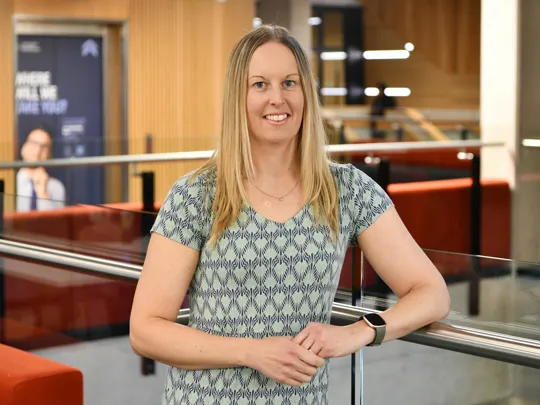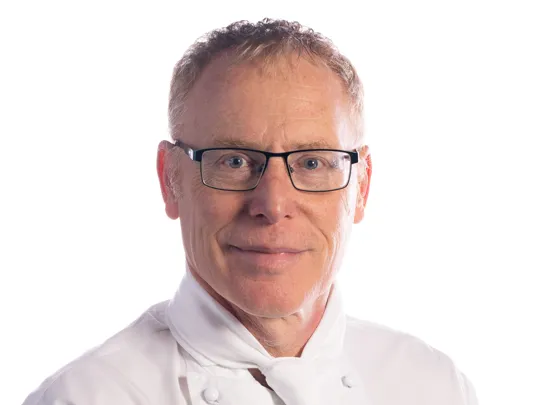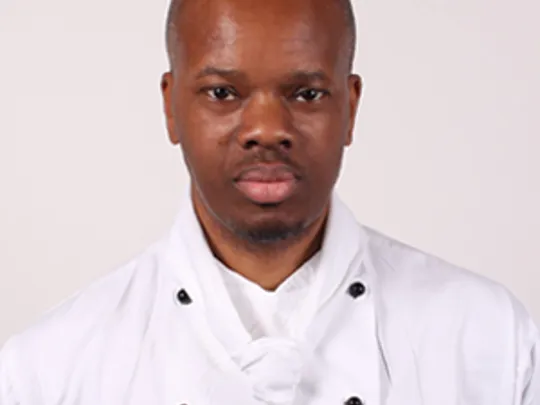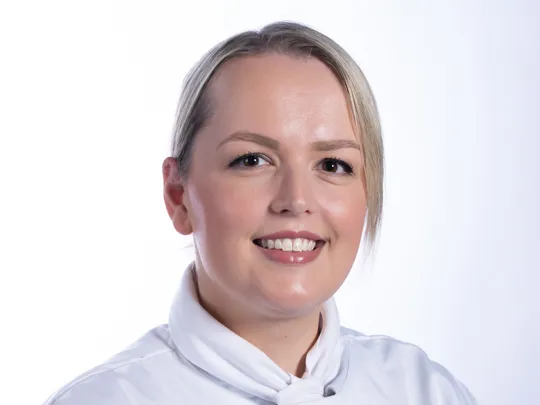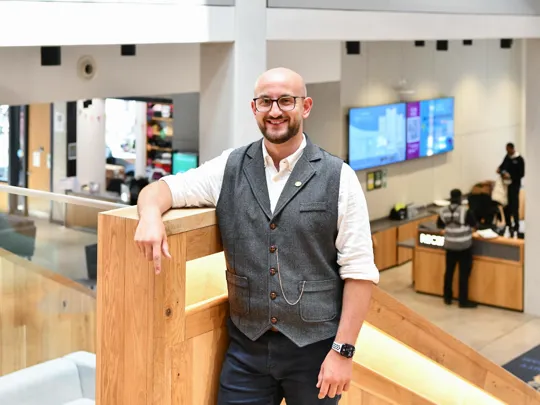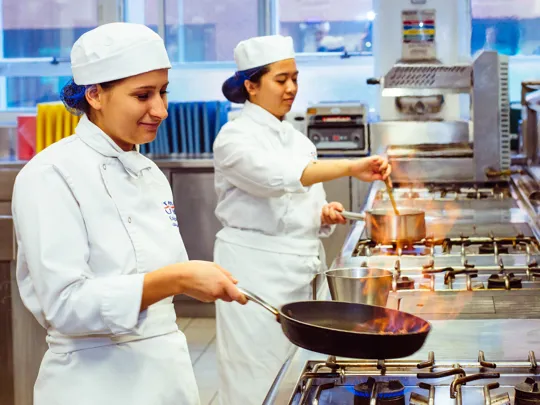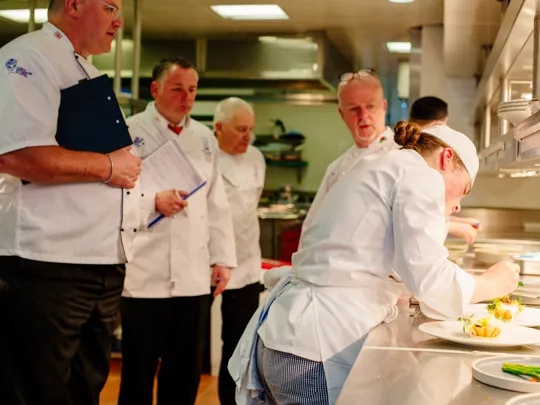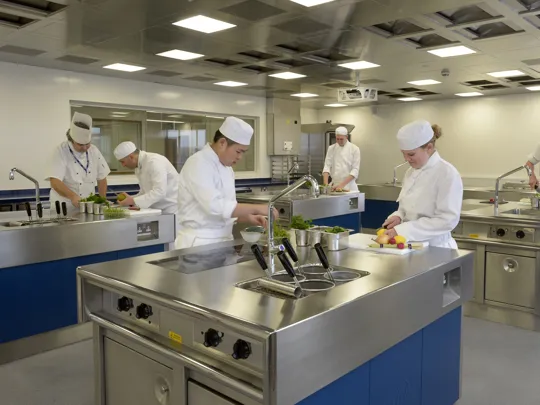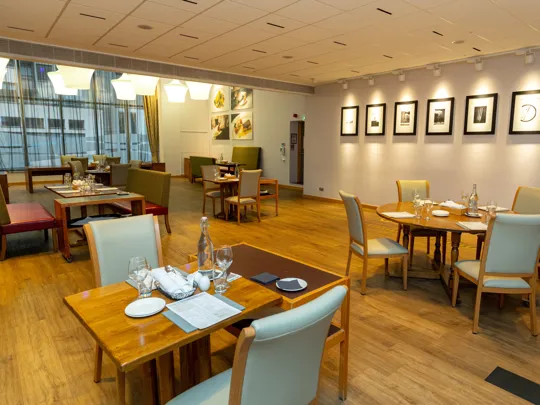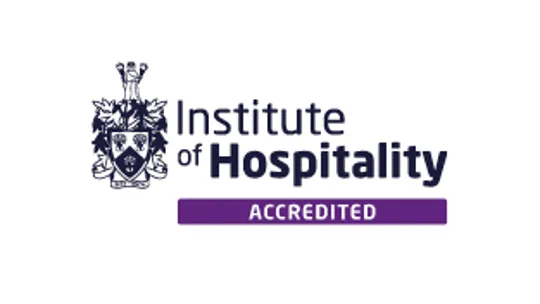Why should I choose to study Professional Chef BA (Hons) Top-up?
- PRACTICAL APPLICATION – Take on opportunities such as working at Michelin-starred restaurants (e.g. Simpsons, Opheem), supporting product development with major firms like Mars or working in our outstanding campus restaurant
- ENRICHMENT – Enjoy a variety of visits and masterclasses by celebrated chefs and food industry experts
- COMPETITIONS – Prove your abilities in a range of industry competitions – you could follow in the footsteps of our past winners at Nestlé Professional Toque d’Or (five-time winners), Zest Quest Asia (two-time champions), BCF Young Chef of the Year and many more
- AWARD-WINNING UNIVERSITY – Study at the highest-ranking university in the region according to student choice (Whatuni Student Choice Awards 2024)
Our facilities
University College Birmingham is renowned for its outstanding food industry training facilities. Studying our Professional Chef Top-up course means you will have access to our professional standard kitchens, award-winning training restaurant and state-of-the-art food development facilities.
Course breakdown
- Modules
Core Modules
Culinary Creators
This module explores advanced culinary techniques, fine dining, and the impact of global food innovators on modern gastronomy. You will examine the evolution of culinary history, Michelin-standard cuisine, and innovative food concepts. The module also focuses on leadership and strategic management in professional kitchens, preparing students to excel in high-pressure environments. Through a comprehensive culinary project, you will apply creativity and entrepreneurial thinking to develop and critique innovative dining experiences. This module combines technical mastery, historical insight, and leadership skills for success in the evolving world of gastronomy.
Entrepreneurial Chef
This module provides a comprehensive exploration of culinary entrepreneurship, combining creative culinary skills with essential business knowledge. You will learn how to develop a unique culinary concept, create a strategic business plan, and effectively market their brand. The course covers key areas such as menu design, kitchen management, operational efficiency, and financial management, along with legal and ethical considerations in the culinary industry. Emphasising sustainability, food trends, and customer needs, this module equips you with the skills and knowledge to thrive in the evolving food industry as successful culinary entrepreneurs.
The Modernist Kitchen
This module explores the science behind molecular gastronomy, global food trends, and sustainable food systems. You will critically evaluate advanced culinary techniques, food science, and technology in modern gastronomy. You will analyse the impact of cultural and technological influences on global food trends, including the role of media. The module also examines sustainable food innovations, such as plant-based diets and lab-grown meats, assessing their ethical and environmental impacts. Through independent research and creative problem-solving, you will apply emerging food technologies to develop innovative culinary solutions for the future.
Food Innovation and Product Development
This module offers an in-depth exploration of culinary research, market analysis, and product development within the food industry. You will examine and critique current market trends, consumer expectations, and the challenges and opportunities facing the sector, with a focus on sustainability, good health and well-being and specialised dietary needs. Through a combination of creative ideation and strategic market research, students will develop innovative product concepts, considering allergens and target market preferences. The module also covers the technical aspects of product development, including prototype creation, sensory evaluation, nutritional analysis, and adherence to food safety standards. Finally, you will gain practical experience in the commercialisation process, including pricing strategies, marketing, and post-launch evaluation, preparing them for leadership roles in the food industry.
The modules listed above for this course are regularly reviewed to ensure they are up to date and informed by industry as well as the latest teaching methods. On occasion, we may need to make unexpected changes to modules – if this occurs, we will contact all offer holders as soon as possible.
Entry requirements
Entry requirements
Academic: A relevant HND or a foundation degree in the areas of culinary skills, culinary arts or culinary management, with 240 credits.
Work experience: to apply, you must have a minimum of three years of demonstrated industry experience at a commensurate level to the course and hold a relevant professional qualification. Candidates will be interviewed by the programme team via this route - supported by references.
International students
Academic: European and International qualifications studied in a relevant subject matter will also be considered. Applicants will need to have achieved 120 ECTS or equivalent (European Credit Transfer).
A recognised Level 5 qualification in a relevant subject or equivalent will also be considered.
If you are unsure if your previous qualification is suitable, please contact us before completing an application on 0121 604 1040.
Key information
Teaching and assessment
Note: Indicative information only – actual timetables and assessment regimes will be issued at your induction.
Teaching
Example of a typical teaching week (up to 18 contact hours):
- Large group teaching – 2 hours
- Smaller group teaching – 2 hours
- Practical kitchen session – 12 hours
- Tutorials – 1 hour
- Subject advice sessions – 1 hour
You will also need to commit around 20 hours per week for individual study time.
Assessment
Estimated breakdown of assessment for this course:
- Coursework – 35%
- Practical assessment – 65%
Timetable
We understand that you need to balance study with work, so wherever possible your lessons will be timetabled into 3-4 days a week.
Our teaching and assessment is underpinned by our Learning and Teaching Strategy 2025-2030.
Uniform and kit costs
This course requires a uniform and kit costing approximately £250-£300, depending on the items you purchase. (Prices are subject to change each year – exact costs and information on how to order required items will be provided to you prior to enrolment).
Tuition fees for home students
If you are a home student enrolling on a bachelor's or foundation degree course at University College Birmingham, the 2025/2026 academic year tuition fee for full-time study is £9,535. For part-time study, the fee is £4,767.50.
Tuition fees for international students
If you are an international student (or have been fee assessed as an international fee payer) and are enrolling on a full-time [Band 1] bachelor's degree course in 2025/2026, the fee for the academic year will be £16,000. If you complete a placement year, there will be an administration fee of £500 for a full year or £250 for a half-year placement.
Unibuddy Community - meet other students on your course
Starting university is an exciting time, but we understand that it can sometimes feel a little daunting. To support you, you will be invited to join our Unibuddy Community, where you can meet other students who have applied for the same course at University College Birmingham, before you start studying here.
As soon as you have been made an offer, you will be sent an invitation email to complete your registration and join the Unibuddy Community. For more information, check out our Unibuddy Community page.
Kick-Start Scheme
As a new student studying this course full-time, you will receive £300 per year through our Kick-Start Scheme (UK students only, eligibility criteria applies). This scheme will support your studies and future career by contributing to course-related materials, uniform or selected items on campus. You may also qualify for an additional £500 per year.
Find out more about the Kick-Start Scheme here.
Accreditations, endorsements and partnerships
University College Birmingham works with a wide range of organisations to ensure you receive the best possible training and qualifications recognised by industry.
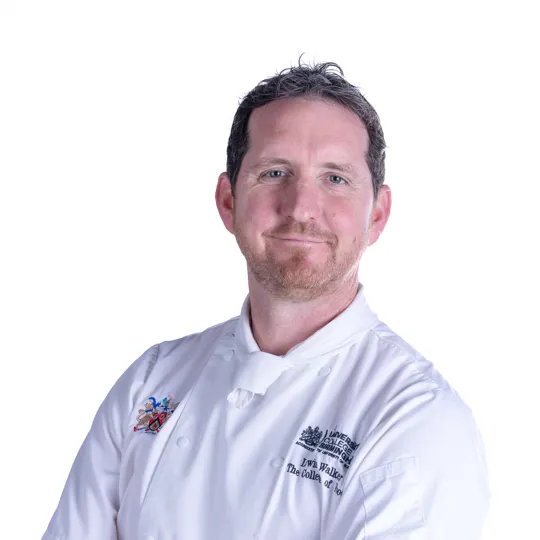
This course will deepen your culinary expertise and advance your career into the hospitality industry. It will provide you with the academic and practical knowledge needed to refine techniques, understand global food trends and develop strong leadership qualities. The course’s focus on innovation, sustainability and management aligns perfectly to help you become a well-rounded chef who can thrive in both creative and operational aspects of the culinary world. This qualification will also open up new opportunities for you to take on senior roles, start your own business, go into product development or even teach and inspire future chefs.
Career opportunities
The example roles and salaries below are intended as a guide only.
Head chef
Average salary: £35,000 - £50,000
Sous chef
Average salary: £30,000 - £40,000
Food business owner/restaurateur
Variable
Catering manager
Average salary: £22,000 - £45,000
Culinary arts lecturer
Average Salary: £39,239
Restaurant manager (casual dining – Michelin)
£25,000 - £42,000
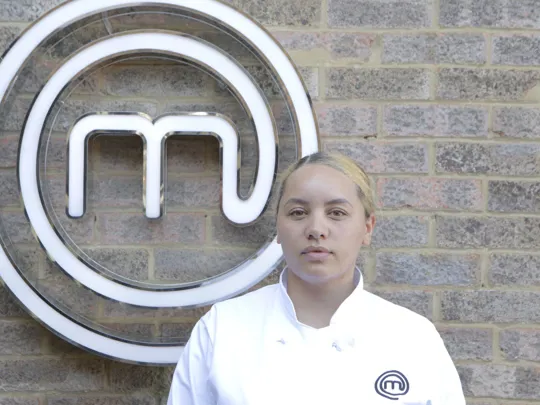
Yasmine's Story
Yasmine topped up her Professional Chef FdA to earn a full BA (Hons) degree. She wowed the judges on TV show MasterChef: The Professionals by preparing for them the same menu that helped her complete her course.
Meet your lecturers
